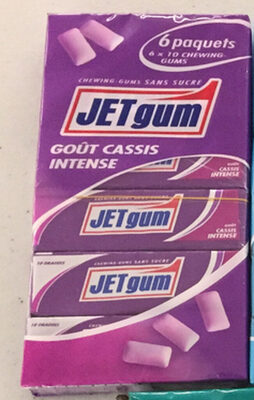
Barcode: 20389154
Chewing gum cassis
HARAM
📝 Reason: This item contains definitively non-Halal components that nullify its permissibility. Muslims should exercise caution and avoid consuming this product entirely.
🏷️ Category: Snacks, Sweet Snacks, Confectioneries, Chewing Gum, Sugar Free Chewing Gum
📄 Certificates: Contains A Source Of Phenylalanine, Excessive Consumption Can Have Laxative Effects, Contient Une Source De Phenylalanine
Ingredients:
Details
Understanding the Halal Status of Chewing Gum Cassis
In today’s market, numerous products claim various health benefits, yet very few address their Halal status. One such product is Chewing Gum Cassis. With Muslims accounting for billions around the globe, it’s crucial for them to know whether the items they consume align with their beliefs and dietary laws. This article explores the Halal status of Chewing Gum Cassis, highlighting its ingredients and explaining why it is deemed Haram (forbidden).
Why is Chewing Gum Cassis Considered Haram?
Chewing Gum Cassis is categorized as Haram primarily due to the presence of carmine, a natural red dye derived from cochineal insects. This ingredient is not permissible according to Islamic dietary laws. Furthermore, other factors in its manufacturing process contribute to its non-compliance with Halal standards. As such, Muslims are advised to avoid this product entirely.
Breaking Down the Ingredients
Let’s take a closer look at the ingredients of Chewing Gum Cassis, which include:
- Sorbitol (E420) – A sugar alcohol widely used as a sweetener. It is generally permissible in Islam.
- Gum base – The primary component used to give the gum its chewy texture. This is also permissible in Islam.
- Maltitol (E965) and Maltitol Syrup – Both these sweeteners are considered acceptable according to Islamic dietary rules.
- Flavorings – Ingredients that impart flavor and generally do not contradict Halal standards.
- Gum Arabic – This stabilizer is Halal and is commonly used in many food products.
- Ascorbic Acid – Known as Vitamin C, this ingredient does not pose any issues regarding Halal compliance.
- Colorants – While some are permissible, carmine is derived from insects and is thus considered Haram.
- Aspartame and Acesulfame K – Both are artificial sweeteners that are permissible in Islam.
- Sunflower Lecithin – Used as an emulsifier, it is Halal.
- Carnauba Wax (E903) – Generally considered acceptable for use in Halal products.
E-numbers Explained
Understanding food additives and their E-numbers is essential in determining Halal compliance. Below are some key E-numbers in Chewing Gum Cassis:
- E420 (Sorbitol) – Often used as a sweetener, humectant, and thickener; compliant with Halal.
- E965 (Maltitol) – Another sweetener that meets Halal standards.
- Carmine – Not an E-number but is relevant as an ingredient; assess carefully for Halal compliance due to its origin.
All other ingredients are either naturally derived or have no conflicting issues concerning Halal laws.
Brand Context and Certifications
Although the specific brand behind Chewing Gum Cassis is not mentioned, it is important to note that products should always come with a Halal certification whenever possible. The availability of such certifications adds a layer of security for Muslims looking to make informed dietary choices.
Conclusion
In conclusion, Chewing Gum Cassis contains non-Halal components that nullify its permissibility. Given the presence of Haram ingredients and the need for careful consumption, Muslims should exercise caution and avoid this product entirely. Always seek products that are explicitly certified Halal to ensure compliance with dietary laws and to maintain a lifestyle that aligns with your beliefs.
